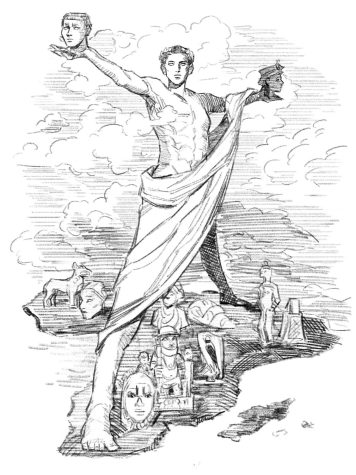The Progressive Challenge Ahead for Torch-Bearer Jacinda Ardern
January 11, 2021
Jacinda Ardern has secured a second term as New Zealand’s prime minister, as well as her reputation for the country’s most popular prime minister in generations.
Ardern’s political stardom succeeds a surge of popularity following her “go hard, go early” approach to the pandemic. After Auckland experienced a brief second wave, she put New Zealand on a strict and total lockdown, trading five tough weeks for a full eradication of COVID. This sacrifice, combined with efficient testing and contact tracing, paid off—New Zealand, now mostly normal, experienced a total of 1,935 coronavirus cases and just under 25 deaths. Just two weeks ago, as global deaths from COVID topped 1.15 million, the country was able to host its first rugby game in front of 30,000 cheering fans [1].
Even before her election, Ardern was celebrated internationally as a leader, feminist, and mom. Videos of her at-home Facebook Live speeches to her constituents went viral, as international teens begged her to lead their countries as well. Progressives fawned at her UN plea to put “kindness” before isolationism and racism, a stark contrast to President Trump’s attack on multilateralism to the same audience one week prior [2]. And on October 17, 2020, her international support went domestic, with New Zealand voters throwing their support behind the Labour Party, giving it the first party majority since the MMP system was introduced in 1996. In contrast, the opposing, conservative-leaning National Party saw its poorest results in almost twenty years [3].
But while her party’s victory may have been certain, its future is not. For people domestically and abroad, Ardern’s platform lies in the compassion and charisma behind her leadership, which may fade after a global pandemic. Critics have become increasingly skeptical of her policymaking, with Times reporter Damien Cave finding that “Ms. Ardern’s global popularity as a liberal standard-bearer has generally outpaced the love for her at home” [4].
His accusations are not unfounded. As recently as January, the Labour Party was far from fulfilling many of its campaign promises. Voters expressed frustrations at the Labour Party’s inability to build its pledged 100,000 affordable homes—of which only 258 have been actualized [4]. Other efforts at lowering child poverty and narrowing the income gap floundered, as did the Labour Party’s polling in February. Many of these problems threaten to haunt her next term as New Zealand moves out of the last of the pandemic and into a lasting recession. Furthermore, issues of climate change, intergenerational poverty, and indigenous protests are expected to play a larger role in national politics as well. The latter regards the growing Maori grassroots movement against land takeovers and armed policing, which has only been exacerbated by the death of George Floyd. Now that Labour holds a comfortable Parliamentary majority, it remains to be seen whether Ardern’s effectiveness as a P.R. communicator can be matched by her policymaking.
Other experts raise concerns on how radically Ardern will move towards her liberal goals. For many, including Professor Jennifer Curtin from the University of Auckland, “she’s a reformer rather than a radical” [5]. Indeed, Arden’s first term involved waiting for consensus to pass legislation. Even during the pandemic, her party’s goals for economic recovery were conventional, focusing on infrastructure and small businesses [4]. While this may have helped her secure center-right votes, it also shifted her party’s agenda in their direction—and away from its own platform.
The recent election has thrown overwhelming power and support behind New Zealand’s Labour Party. The question that remains, then, is how radically—or cautiously—they will use their new power. If Ardern desires to live up to her global image as a fiercely liberal, politically adept leader, charisma alone may not cut it.
[1] https://www.worldometers.info/coronavirus/
[2] https://www.newsroom.co.nz/full-text-pms-speech-to-the-united-nations
[3] https://www.bbc.com/news/world-asia-54519628
[4] https://www.nytimes.com/2020/10/16/world/asia/jacinda-ardern-new-zealand-election.html
[5] https://www.nytimes.com/2020/10/17/world/asia/jacinda-ardern-election-new-zealand.html


